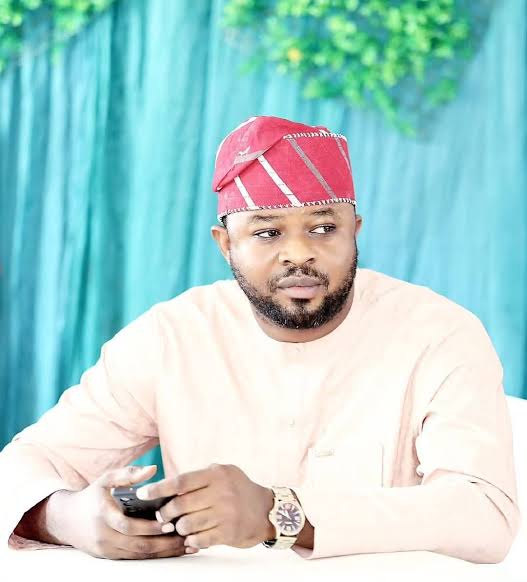Paragraph 1: The Voluntary Withdrawal and Political Lineage
In the realm of local politics, acts of deference and strategic maneuvering often shape the landscape of power. In Agege Local Government Area, Lagos State, the forthcoming council election slated for July 12, 2025, witnessed a significant development when the incumbent Vice Chairman, Mr. Oluwagbenga Abiola, publicly announced his withdrawal from the chairmanship race. This decision, seemingly unexpected, stemmed from Abiola’s commitment to supporting the political aspirations of Abdulganiyu Obasa, the son of the influential Speaker of the Lagos State House of Assembly, Mudashiru Obasa. Abiola, a known protégé of the Speaker, framed his withdrawal not as a forced concession but as a demonstration of loyalty and respect for his political mentor. This narrative of voluntary withdrawal underscores the intricate dynamics of political patronage and power brokering within the local government.
Paragraph 2: Affirmations of Loyalty and Political Mentorship
Abiola’s pronouncements to the News Agency of Nigeria (NAN) emphasized his unwavering allegiance to both the ruling All Progressives Congress (APC) and Speaker Obasa. He reiterated that his decision was entirely voluntary, a conscious choice made to bolster Abdulganiyu Obasa’s candidacy. This public affirmation served to solidify his standing within the party structure and demonstrate his commitment to the Speaker’s political agenda. The narrative he presented aimed to dispel any speculation of coercion, portraying his withdrawal as a strategic move aligned with the broader political interests of the party and his mentor. This carefully crafted narrative highlights the importance of public perception and political maneuvering within the local political arena.
Paragraph 3: Stakeholder Endorsement and Political Influence
Days before Abiola’s announcement, influential stakeholders within Agege Local Government had publicly urged Speaker Obasa to allow his son to contest the chairmanship. Their endorsement cited the Speaker’s substantial contributions to the area’s development and his long-standing political influence. This preemptive endorsement created a powerful momentum for Abdulganiyu Obasa’s candidacy, effectively paving the way for Abiola’s subsequent withdrawal. The stakeholders’ appeal to Obasa, framed as a recognition of his contributions, subtly highlighted the weight of his political capital and its potential impact on the local election.
Paragraph 4: Expressions of Gratitude and Political Indebtedness
Abiola, in addressing rumors of pressure to withdraw, expressed profound gratitude for Speaker Obasa’s role in shaping his political career. He detailed the Speaker’s instrumental role in securing key appointments, tracing his trajectory from Special Assistant on Media to Sole Administrator of Agege LGA, then to Secretary to the Local Government, and finally to Vice Chairman. By publicly acknowledging his indebtedness to the Speaker, Abiola reinforced the narrative of loyalty and respect, further solidifying their political alliance. This narrative of mentorship and advancement underscored the importance of personal connections within the political hierarchy.
Paragraph 5: Balancing Aspiration and Party Allegiance
While admitting his personal aspirations for the chairmanship, Abiola emphasized his respect for the party’s collective decision. He acknowledged the unified stance of the party leaders and stakeholders, framing his withdrawal as an act of deference to their collective will. This public acceptance of the party’s decision, even at the expense of his own ambition, reinforced his image as a team player and a loyal party member. His statement served to minimize any potential dissent and present a united front within the party ranks.
Paragraph 6: Protests, Allegations, and Assurances amidst Political Tensions
In a contrasting scenario within the neighboring Ojokoro Local Council Development Area (LCDA), also in Lagos State, members of the APC staged a protest against alleged candidate imposition for the same July 12 local government election. The demonstrators voiced their concerns about the selection process, alleging that party leaders were attempting to install an outsider as the chairmanship candidate. Their chants and placards reflected their demand for a fair and transparent process, allowing all aspirants to compete on a level playing field. Local party leaders, in response to the protests, sought to quell the unrest by assuring the demonstrators that no candidate would be imposed and that the party would uphold a fair and democratic selection process. This incident highlighted the potential for tensions and dissent within the party, particularly regarding candidate selection and the perception of fairness and transparency. The juxtaposition of Abiola’s voluntary withdrawal in Agege with the protests in Ojokoro underscores the complexities of local politics, where loyalty, ambition, and public perception intertwine to shape the electoral landscape.


